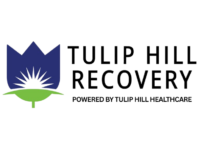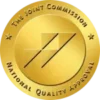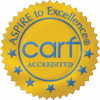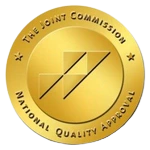FAQ
Starting rehab can feel overwhelming, especially if it’s your first time. With so many options, terms, and decisions to make, it’s normal to have questions. In fact, many people delay getting help simply because they don’t know what to expect or where to start.
This page is here to change that.
Welcome to Tulip Hill Recovery’s Drug & Alcohol Rehab FAQ in Murfreesboro, TN—a trusted resource built to give you clear, honest answers to the most common concerns about addiction treatment. Whether you’re wondering how long rehab takes, what detox feels like, or how to help a loved one, we’ve covered it all.
Our team believes that clarity leads to confidence. That’s why we’re committed to making the rehab process as transparent and compassionate as possible.
Explore the sections below to find the guidance you need—and remember, we’re always just a call away.
Addiction Treatment FAQ – Rehab, Detox & Recovery Answers
Before Rehab
Waiting to seek treatment can worsen both physical and mental health. Addiction is a progressive condition, meaning it typically gets worse without help. Delaying care increases the risk of overdose, legal issues, and relationship damage. Early intervention can save your life or the life of someone you love.
If you’re asking this question, chances are the answer is yes. Addiction isn’t measured by how much you use—it’s about how your substance use is affecting your life, health, and relationships. Even if you’re “high-functioning,” you still deserve help.
Most treatment centers, including Tulip Hill Recovery, accept a range of insurance plans. There are also private pay options, payment plans, and in some cases, financial assistance. Call our admissions team to explore your options—we’ll walk you through it.
Many insurance providers cover addiction treatment under mental health and substance use benefits. We work with several major insurers and can help verify your coverage quickly and confidentially.
Look for a licensed facility with experienced staff, individualized care plans, and a full continuum of care (like detox, PHP, IOP, and aftercare). Reviews and success stories can also offer valuable insights into a center’s quality of care.
Top-rated centers focus on evidence-based therapies, dual diagnosis treatment, trauma-informed care, and personalized programming. At Tulip Hill Recovery, we combine clinical expertise with compassion in a peaceful Murfreesboro setting.
Inpatient rehab offers 24/7 care and housing, ideal for those needing intense support. Outpatient rehab, such as PHP and IOP, gives you the chance to live at home while attending therapy. Both are effective, depending on your needs.
Quitting “cold turkey” without medical support is risky, especially for substances like alcohol, benzos, or opioids. Professional treatment increases your chances of lasting recovery and keeps you safe during detox.
Traveling for rehab can offer a fresh start, but many people benefit from staying local for easier family involvement and aftercare. Tulip Hill offers drug & alcohol rehab in Murfreesboro, TN, with strong ties to the local recovery community.
Start by making arrangements for work, family, and finances. Pack only approved items (we’ll give you a list) and come with an open mind. The hardest part is showing up—once you’re here, we’ll guide the rest.
Unfortunately, there’s still a lot of misunderstanding about addiction and treatment, but rehab is healthcare—it’s not shameful, it’s brave.
At Tulip Hill, admission begins with a free, confidential assessment. From there, we’ll help with insurance verification, intake scheduling, and a warm welcome when you arrive. We make the process easy so you can focus on getting better.
During Rehab FAQs
Most days in rehab follow a structured schedule that includes individual therapy, group sessions, educational classes, and holistic activities such as yoga or mindfulness. Meals, downtime, and personal reflection are also built into the schedule. At Tulip Hill, each day is designed to support healing—mentally, emotionally, and physically.
Detox can last anywhere from 3 to 10 days, depending on the substances used and the severity of withdrawal symptoms. Medically supervised detox ensures your safety as well as your comfort during this critical first stage of recovery.
Everyone’s journey is different. Some people benefit from a 30-day stay, while others may continue with treatment for 60 or 90 days or more. We offer a full continuum of care, including Partial Hospitalization (PHP), Intensive Outpatient (IOP), and aftercare to support long-term success.
You can bring comfortable clothes, toiletries (alcohol-free), prescription medications (in their original bottles), and a small number of personal items, such as books or journals. We’ll provide a complete packing list before your arrival to make things easy.
You’re not alone—many people enter treatment with co-occurring mental health disorders like anxiety, depression, or PTSD. At Tulip Hill, we specialize in dual diagnosis treatment, offering integrated care for both substance use and mental health.
We understand the concern. Our case managers can help coordinate communication and planning for loved ones. Family therapy is also available to involve your support system in the recovery process.
You’ll be in treatment with others facing similar struggles—people committed to recovery. Our community is supportive and diverse, with clients of different ages and backgrounds. You’re never alone in this.
While participation is voluntary, we strongly encourage you to complete your program to give yourself the best chance of achieving a lasting recovery. If you’re struggling during your stay, talk to your therapist or care team—we’re here to help you work through challenges, not walk away from them.
After Rehab
After rehab, your recovery journey continues with ongoing support. At Tulip Hill, we help clients transition into aftercare, which may include continued therapy, support groups, sober living options, and relapse prevention planning. The goal is to build a healthy, sustainable lifestyle after treatment ends.
Relapse is not a failure—it’s a sign that more support may be needed. We view it as an opportunity to learn, adjust your recovery plan, and move forward. Tulip Hill offers compassionate, nonjudgmental help if you return to use. You can always come back for treatment or additional support.
Staying sober requires a structured approach, ongoing support, and self-awareness. We recommend continuing therapy, participation in peer support groups such as AA or SMART Recovery, and maintaining connections within the recovery community. Healthy habits, coping skills, and accountability all play a significant role.
You’ll work with your therapist to identify personal triggers and develop strategies to manage them. This could include mindfulness practices, avoiding certain environments, or using support systems when you feel vulnerable. Learning to handle triggers is a major focus of your aftercare plan.
In many cases, yes. The Family and Medical Leave Act (FMLA) may protect your job during treatment. We can help you explore your rights and discuss them with your employer, with your permission, if needed. Many people return to work after rehab with renewed focus and purpose.
Yes—and that’s not a bad thing. You may need to step away from relationships that support unhealthy behaviors, but you’ll also form new connections through recovery communities. Rehab helps you build a social life rooted in health, honesty, and support.
Rebuilding trust takes time, consistency, and accountability. Family therapy, open communication, and follow-through on commitments all play a role. Tulip Hill offers ongoing support for both you and your loved ones as you repair relationships.
A solid aftercare plan should include:
Clear goals for employment, education, or family. Our team helps you build a customized aftercare plan before you leave treatment, so you’re well-equipped for long-term success.
Continued therapy (individual or group)
A relapse prevention strategy
Support group participation
Healthy routine (sleep, nutrition, exercise)
Family Help FAQ – Supporting a Loved One in Recovery
Supporting someone with addiction starts with compassion and education. Avoid judgment or ultimatums; instead, encourage treatment and support. Set healthy boundaries, express your concern, and offer to help them research rehab options, such as Tulip Hill Recovery. You can’t force someone to change, but your support can be a powerful motivator.
Addiction often creates stress, mistrust, and breakdowns in communication within families. Loved ones may feel confused, angry, or helpless. Over time, codependency and enabling behaviors can develop, keeping everyone stuck in unhealthy patterns. That’s why family involvement in recovery is so important—it promotes healing for everyone.
Recovery from alcoholism is a long-term process. You can help by encouraging consistency in treatment, avoiding triggers like alcohol at gatherings, and attending support groups such as Al-Anon. Be patient—rebuilding trust takes time, and recovery is not a linear process.
An addiction to opioids often involves physical dependence, so professional detox and treatment are critical. Avoid enabling behaviors (such as giving money) and focus on support through action—offering rides to appointments, encouraging treatment, or contributing to research programs like those at Tulip Hill. Educate yourself about opioid use disorder to better understand the experience.
Families play a crucial role in recovery. By participating in therapy, learning about addiction, and creating a stable, supportive environment, families can significantly improve treatment outcomes. Recovery is more sustainable when the entire system is involved and works together towards healing.
Family therapy addresses the emotional fallout of addiction and helps everyone involved build healthier relationships. At Tulip Hill Recovery, Family Therapy for Addiction Treatment in Tennessee helps families rebuild trust, improve communication, and establish boundaries. It’s not about blaming—it’s about healing together.
It’s heartbreaking when someone refuses help, but you still have options. Stay consistent in your boundaries, seek support for yourself through therapy or support groups, and consider professional intervention services if needed. Let them know help is available whenever they’re ready—and that you’ll support their decision to get better.
Rehab FAQs – What to Expect in Drug & Alcohol Treatment
When considering treatment, it’s natural to feel uncertain about what daily life in rehab looks like. At Tulip Hill Recovery, we aim to remove the guesswork from the process and guide you every step of the way.
We offer several levels of care tailored to your needs:
- Partial Hospitalization Program (PHP) – A full-day program, five days a week, with intensive therapeutic support while you live off-site.
- Intensive Outpatient Program (IOP) – Ideal for those stepping down from PHP or needing flexible treatment while maintaining work or family responsibilities.
- Outpatient Treatment – Less intensive but still structured, this format supports continued growth with part-time therapy.
Daily structure typically includes a mix of individual therapy, group therapy, psychoeducation, skill-building sessions, and holistic support. Sessions are led by licensed clinicians trained in trauma-informed care, which means treatment is always delivered with compassion, sensitivity, and safety in mind.
We also specialize in dual diagnosis treatment, supporting clients who face both substance use and mental health conditions like depression, anxiety, or PTSD. This integrated approach is crucial for achieving lasting recovery, as both conditions are often interlinked.
Whether you’re entering PHP, IOP, or outpatient care, Tulip Hill is here to provide the structure, support, and healing environment needed for sustainable recovery.
Drug & Alcohol Rehab FAQ – Insurance, Cost & Admissions
Navigating the logistics of addiction treatment—like cost, insurance, and admissions—can feel overwhelming. At Tulip Hill Recovery, we’re here to make it easier. Below are answers to the most common questions about Drug & Alcohol Rehab, including financing and getting started with care.
Does Insurance Cover Addiction Treatment?
Yes, many insurance plans—both private and employer-sponsored—cover some or all of the costs of addiction treatment, including detox, therapy, and medications. Our team can verify your benefits to help you understand your coverage, allowing you to make an informed decision.
How Much Does Rehab Cost in Murfreesboro, TN?
Costs vary depending on the level of care (PHP, IOP, or outpatient), the length of stay, and the type of insurance coverage. We provide upfront estimates and work closely with each client to find affordable options that suit their specific situation.
What If I Don’t Have Insurance?
We believe cost shouldn’t be a barrier to care. Tulip Hill offers flexible self-pay options and can discuss payment plans or financial assistance when available. Don’t let a lack of insurance stop you from reaching out.
Do You Accept Medicaid or Private Insurance?
We accept most private insurance plans. If you’re unsure about your coverage, we’ll guide you through it. While Medicaid coverage may be limited, we’re happy to help you explore all your options.
Can I Get a Same-Day Admission?
In many cases, yes. We offer same-day assessments and admissions whenever possible to help you or your loved one begin the recovery process without delay.
What’s Included in the Cost of Rehab?
At Tulip Hill, your care includes individualized treatment planning, therapy (individual and group), family support, case management, and access to holistic therapies. There are no surprise add-ons—we’re upfront and transparent.
Why Choose Tulip Hill for Drug & Alcohol Rehab in Murfreesboro?
Choosing the right rehab center can make all the difference in your recovery journey. At Tulip Hill Recovery, we combine clinical excellence with genuine compassion, offering personalized treatment for individuals and families across Middle Tennessee.
As a family-owned center with lived experience, we understand addiction from both a personal and professional perspective. Our team is committed to walking beside you, without judgment, every step of the way.
We specialize in a dual diagnosis and trauma-informed approach, which means we treat not just addiction but the underlying mental health issues that often fuel it.
Whether you’re struggling with depression, anxiety, PTSD, or another condition, our integrated care model provides the comprehensive support you need to heal fully.
All treatment plans are customized to fit your unique needs, goals, and level of readiness.
Conveniently located in Murfreesboro, Tulip Hill Recovery is easily accessible to residents across Middle Tennessee, including Nashville, Franklin, and beyond.
Do You Have More Questions About Rehab in Murfreesboro?
If you didn’t find the answer you were looking for in our Drug & Alcohol Rehab FAQ in Murfreesboro, TN, don’t worry—we’re here to help.
Whether you’re wondering about costs, schedules, what to pack, or how to talk to a loved one about rehab, no question is too small or too personal. Our friendly, knowledgeable staff is happy to walk you through the details, judgment-free and always in a confidential manner.
At Tulip Hill Recovery, we know how overwhelming it can feel to take the first step toward treatment, especially when so many questions are still unanswered.
We also offer same-day assessments whenever possible so that you can get started without delay.
Contact us today or submit your inquiry through our contact form. You don’t have to navigate this alone—real answers and compassionate support are just a conversation away.

Call or message us

Free assessment

Insurance check

Choose a start date
 |
Medically Reviewed By:
Board-Certified Psychiatrist and Addictionologist
|
 |
Clinically Reviewed By:
Board Certified Clinical Social Worker
|
Our Verifications & Affiliations
Yes, Your Insurance Covers Detox and Rehab Treatment.
Get Family Support Now
Supporting Families Through Recovery
We understand addiction affects the whole family. Our comprehensive family program helps rebuild trust and restore relationships.
Weekly Family Therapy Sessions
Educational Workshops
Support Groups
Communication Skills Training









